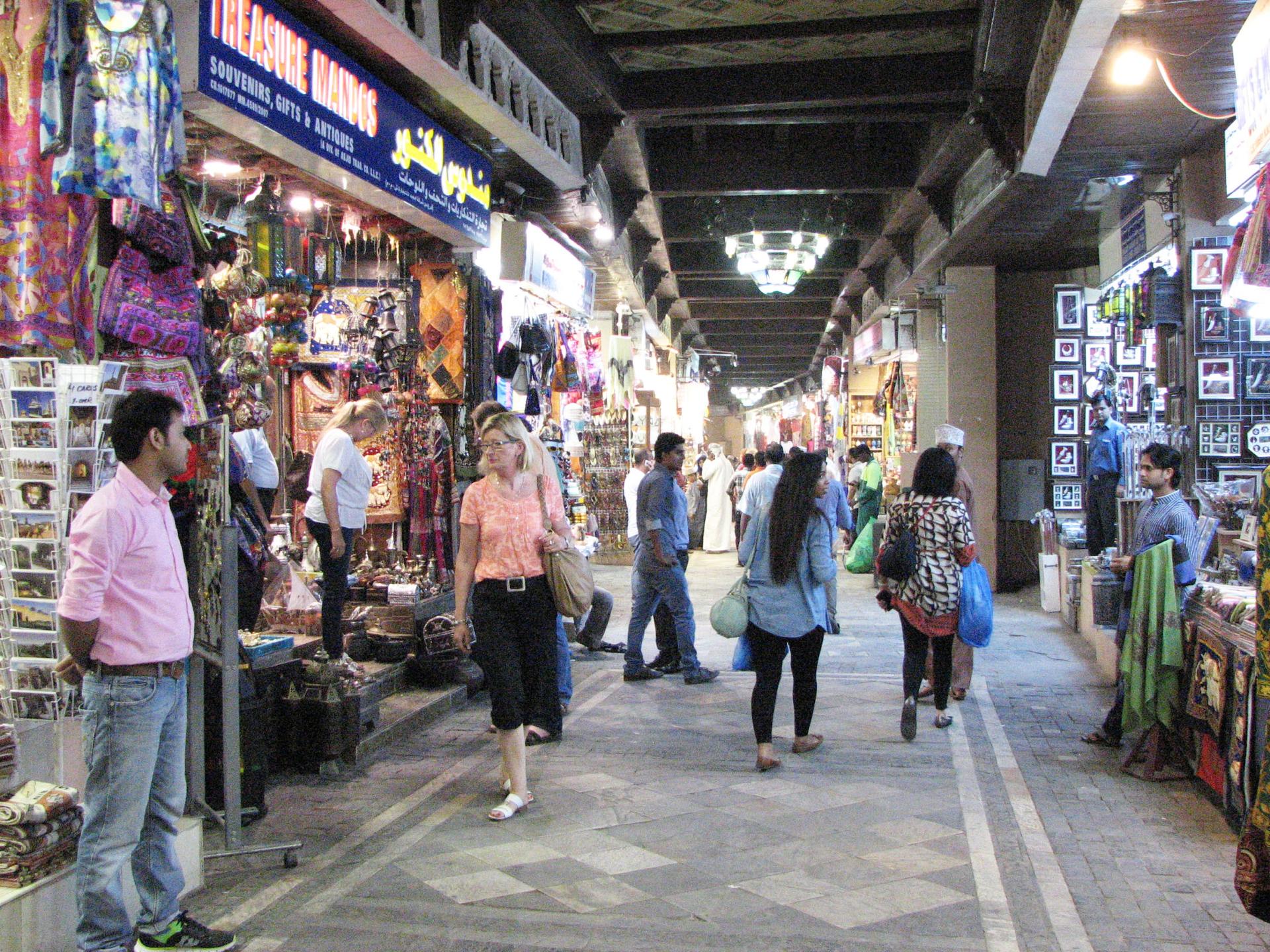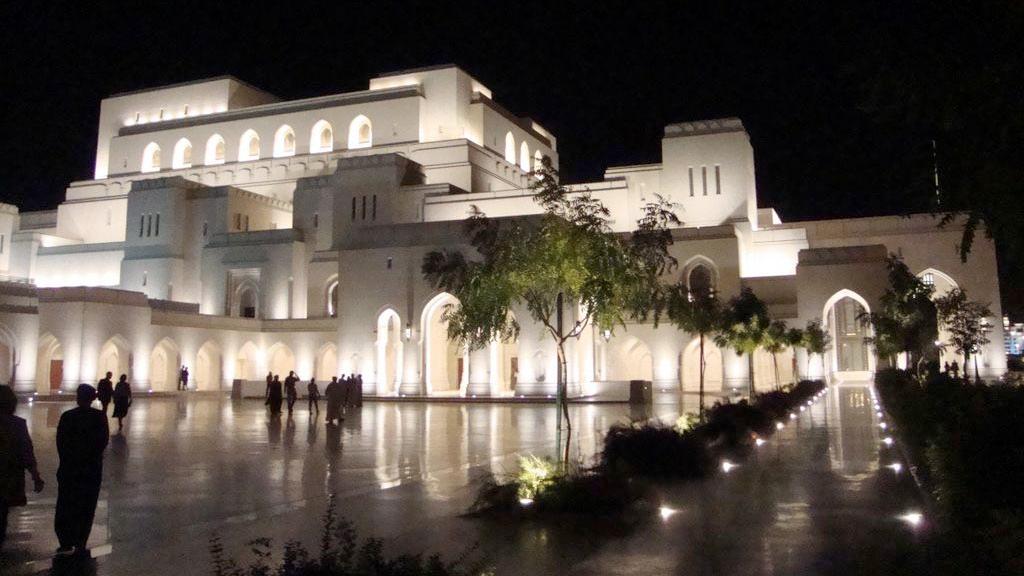The Royal Opera House in Muscat, the capital of Oman.
Oman, the oldest independent state in the Arab world, favors understated, quiet elegance rather than the glitz, glam and high rises of places like Dubai. It's the opera house in Oman’s capitol, Muscat, that attracts tourists instead of Michelin restaurants.
It's the same for the 200-year-old Muttrah souq, or market, which sits opposite towering container ships in Muscat's port. Fragrant incense and the scent of Arabian perfumes waft through the dark, narrow alleys. Merchants still sell frankincense and myrrh here, along with bright, traditional Omani clothing, silver daggers and other goods.
“Muttrah market was designed based on other Arab markets all around Arabia," says Murtadha Al Lawati, the director of the Ghalyas Museum of Modern Art, a short walk from the souq. "They call this market [the] shaded market."

In places like Bahrain and Dubai, the governments have either demolished their souqs or neglected them in favor of modern shopping malls, with stores like the Gap, California Pizza Kitchens and even ski slopes. But in Oman, the government invested in air-conditioning and other improvements for its traditional markets.
“You see, that's what makes us feel alright — we have balanced it," says Lawati, who's sporting Birkenstocks under his dishdasha, the traditional robe-style garment worn by men in the Gulf. "If you walk in Cairo, you will hardly see anyone walking in traditional dress. So there's no identity.”
It's a blend pioneered by Oman’s leader, Sultan Qaboos bin Said Al Said. When he came to power in 1970, there was just one road in Oman — and little else. He created a modern infrastructure, but maintained traditional forts, watchtowers and other vestiges of Oman’s history. He still has plans for a large public library, performing arts centers and a national railway.
Lawati's Ghaliyas Museum is a model of a typical Omani house. He guides me through the rooms, each decorated as a visual timeline of the nation’s progress. Meanwhilere, there's an ultra-modern art gallery next door, painted all in white. The works combine classic Arabic calligraphy with primary colors and abstract shapes.
The popular opera house, opened in 2011, is the first in the Gulf. The state-of-the-art hall is at least 80 percent full, if not sold out, for every event. Weekly tours of the opera house, which looks like a Sultan’s palace, take visitors through a vast piazza where dramatic lighting frames tall archways inspired by the nearby Nakhal Fort.
The dress code for performances is strictly formal; the hall has a loaner rack of men’s jackets and beautiful abayas for women, encrusted with gold beading. If I hadn’t left my driver's license as collateral, I might have "forgotten" to give it back.
Christina Scheppelmann, the Opera House director, says it may seem over the top, but it’s all in character. “The interior design is in an Omani-Arabic style in order to really fit the country and the culture of this country," he says.
Domingo, Bocelli, Yo-Yo Ma, and a host of other big names have played here, but those are just the Western ones. On this night, young women are swooning and singing along with a Tunisian pop star on stage. The building and the playbill are pretty fancy, but tickets are anything but. Prices start at $5, which makes it easy for 27-year-old Fatin to attend regularly.
“In all season, I am coming … four times in a month,” she says. Fatin's favorite performances are ballet and opera.
“We are so happy, this is the first one you can come to see ballet and opera. I was just hearing it before, but not live, we didn’t see, so, is the first time. It’s perfect,” she says with excitement. Just as perfect as wearing Birkenstocks with a dishdasha.
We want to hear your feedback so we can keep improving our website, theworld.org. Please fill out this quick survey and let us know your thoughts (your answers will be anonymous). Thanks for your time!
